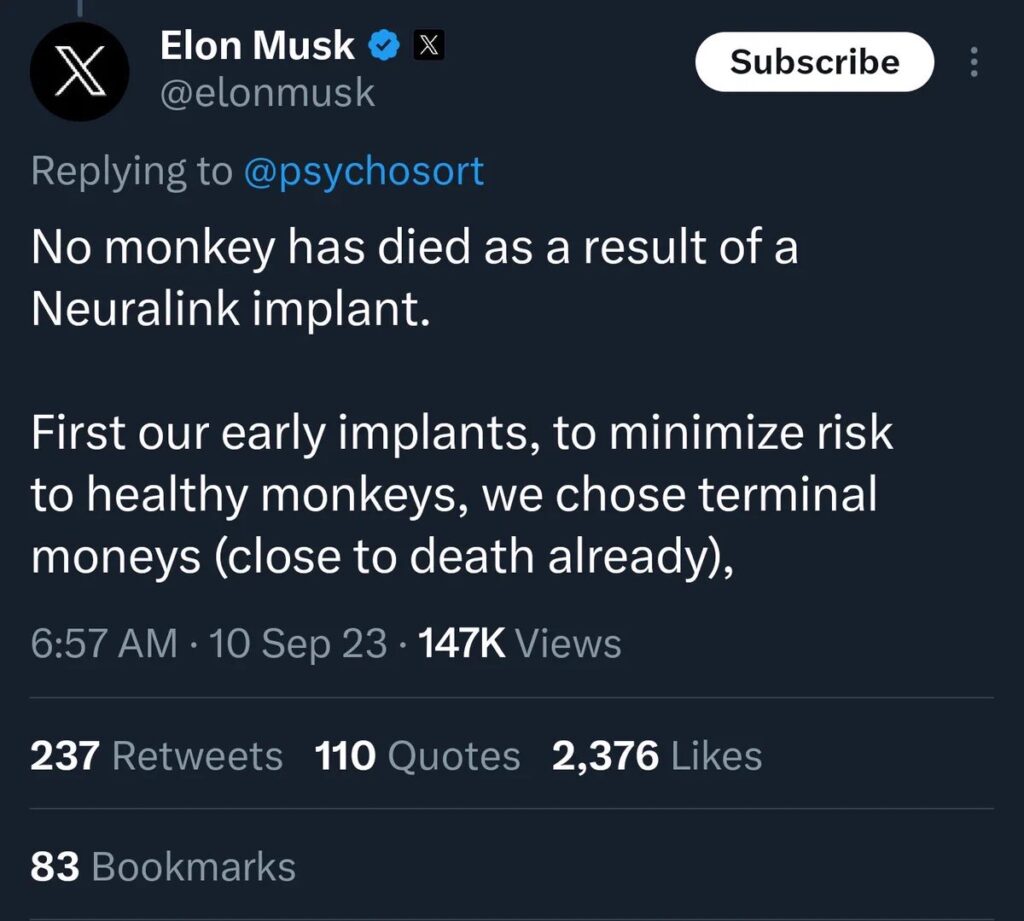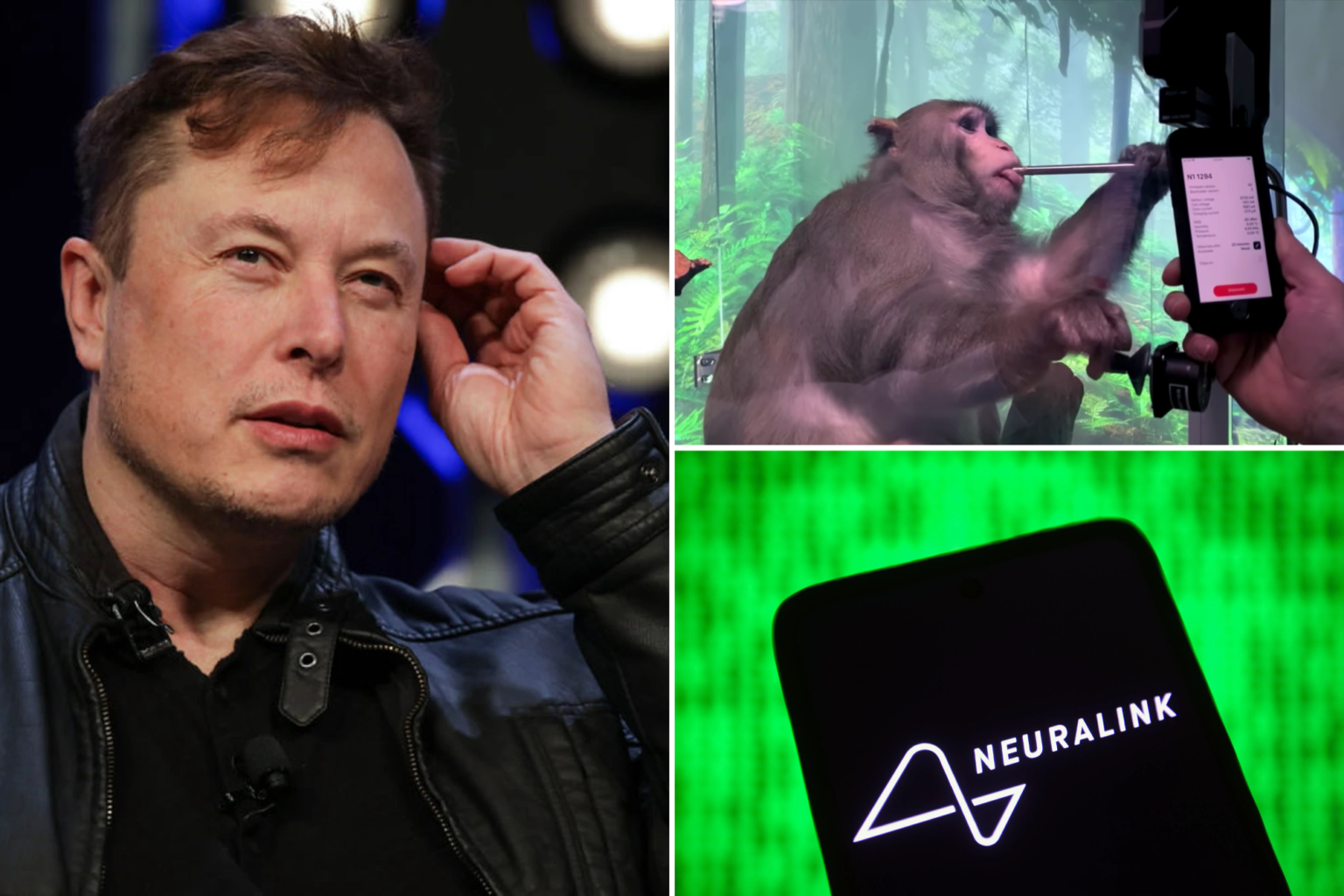Elon Musk, the enigmatic CEO of SpaceX, has found himself embroiled in controversy as he vigorously defends his brain chip venture, Neuralink, against allegations of animal abuse. Musk’s assertion that the experimental implants did not lead to the death of any monkeys has ignited a passionate debate, shedding light on the ethical complexities surrounding scientific research and animal welfare.
The Accusations:
In February 2022, the Physicians Committee for Responsible Medicine (PCRM) filed a complaint against Neuralink, accusing the company of conducting invasive brain experiments on 23 rhesus macaque monkeys, with a staggering fifteen of them tragically perishing during the procedures. The allegations were compounded by shocking photographs obtained by the PCRM, revealing chronic infections, seizures, paralysis, and painful side effects suffered by the monkeys, which they attributed to the experiments.
Neuralink’s Response:
Neuralink responded by asserting that their treatment of animals was marked by respect and care. However, they did acknowledge that eight monkeys, constituting 21% of the test subjects, had died during the trials. Two were euthanized as planned for data collection, while the remaining six were euthanized based on medical advice from UC Davis’ veterinary staff.
The Evolution of Experiments:
The research conducted by Neuralink, in collaboration with the University of California, Davis’ California National Primate Research Center, began with experiments on animal cadavers and eventually transitioned to terminal procedures. Terminal procedures involve the humane euthanization of animals that were already in critical condition, carried out before they could regain consciousness post-anesthesia.
Elon Musk’s Defense:

Elon Musk took to social media to staunchly defend Neuralink against allegations of animal abuse. He claimed that “no monkey has died as a result of a Neuralink implant” and argued that the company had specifically chosen “terminal monkeys” to minimize risks to healthy primates, as these animals were already in critical condition.
The Ethical Debate:
Musk’s assertion has ignited an intense ethical debate. Critics argue that the distinction between terminal and healthy animals may not alleviate concerns surrounding suffering. The reported injuries, including monkeys vomiting due to glue-induced brain bleeds, raise questions about the ethical implications of Neuralink’s experiments.
The allegations of animal abuse surrounding Neuralink underscore the crucial importance of adhering to ethical standards in scientific research. The debate sparked by Elon Musk’s defense highlights the need for transparency and accountability in projects involving animal subjects. As the discussions continue, they serve as a poignant reminder of the ethical dilemmas that accompany technological advancements and scientific exploration.




